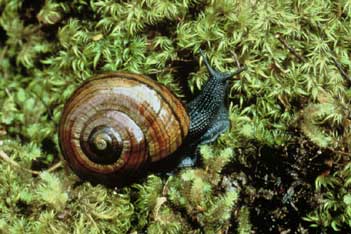800 Powelliphanta giant snails frozen to death by mistake in New Zealand
800 endangered Powelliphanta giant land snails, were accidentally frozen to death by conservationists in New Zealand.
The giant land snails from a rare species, rescued from an area earmarked for coal mining, were kept in a temperature-controlled room run by the Department of Conservation (DoC).
However, a faulty gauge sent temperatures plunging below freezing.
The conservationists have blamed a technical glitch after the 800 Powelliphanta snails were frozen to death.
Staff at the DoC’s West Coast Conservancy in Hokitika are said to have been “very upset”.

800 endangered Powelliphanta giant land snails, were accidentally frozen to death by conservationists in New Zealand
The Powelliphanta giant land snails were among 6,000 taken from the Stockton Plateau on South Island several years ago to make way for coal mining, New Zealand media reported.
About 4,000 of those have been relocated to new habitats.
John Lyall, the conservancy’s technical support manager, said a temperature probe in one of three containers had failed, making the room colder than the snails could stand.
He also said the incident had been “very upsetting” for staff, who were committed to the care of the snails.
“We organized to have the probe replaced as soon as we noticed the problem,” John Lyall told local media.
“And we’ve instituted a more regular set of monitoring checks and are currently organizing to install an alert system.”
John Lyall said 360 eggs had been hatched in the past year and they were confident the breeding programme would recover.
Some environmentalists said the accident demonstrated what happened when development was allowed to displace wildlife from its natural habitat.
“First, their natural home was destroyed for a coalmine on Stockton Plateau, and now they’ve died in captivity,” said Nicola Vallance of New Zealand’s Forest and Bird organization.
“This tragedy was entirely avoidable.
“Keeping our wildlife in fridges is obviously not how New Zealanders would like to care for native animals found nowhere else in the world.
“It’s a sad fact that this has been the best option for them because moving them back to the wild in other parts of the West Coast has not worked,” Nicola Vallance added.
